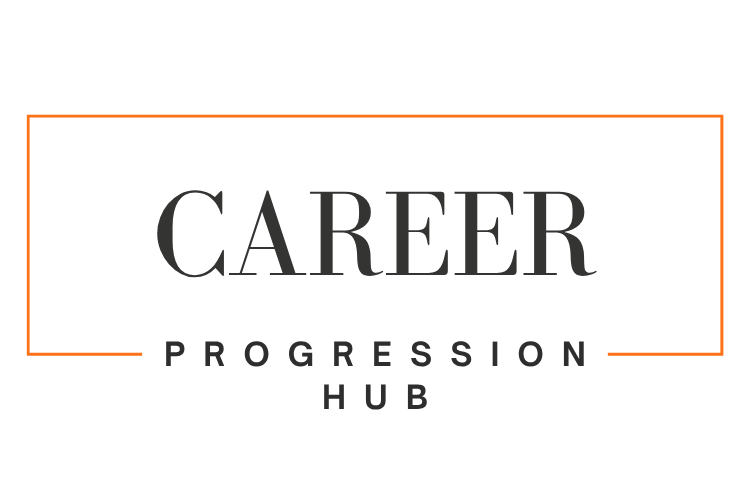Career Progression Hub
London, UK
Introduction: Why Soft Skills You Can’t Automate Matter
In today’s fast-changing workplace, technical knowledge is not enough. The soft skills you can’t automate — like communication, emotional intelligence, and adaptability — are what make you memorable. Whether you’re just starting out, stepping into leadership, or returning after a career break, it’s these skills that help you connect, influence, and grow.
According to LinkedIn, 92% of talent professionals say soft skills are equally or more important than hard skills. That’s something I’ve witnessed time and time again in recruitment — your human skills are your most valuable career asset.
What Are the Soft Skills You Can’t Automate?
The soft skills you can’t automate are personal attributes and behaviours that enhance the way you interact and perform at work. They include:
- Communication: expressing ideas clearly and listening with intent
- Emotional intelligence: recognising and managing emotions — both yours and others’
- Adaptability: thriving through change and uncertainty
- Teamwork: building trust and collaborating effectively
- Resilience: recovering from setbacks and learning from challenges
- Critical thinking: analysing information to make sound, balanced decisions
These skills are universal, flexible, and essential across industries. these aren’t learned from manuals — they develop through reflection, interaction, and experience.
Karina Nguyen, a researcher at OpenAI, highlighted that while AI can automate many tasks, it struggles with creativity and emotional intelligence — skills that are inherently human Business Insider.
Why Soft Skills You Can’t Automate Are Critical for Career Growth
Build Trust and Influence
When you communicate with empathy and clarity, you build trust — the foundation of leadership. In interviews and workplaces alike, people remember how you make them feel, not just what you know.
Future-Proof Your Career
Technology can process data, but it can’t interpret emotions or navigate complex human dynamics. The soft skills you can’t automate — like creativity and emotional awareness — are your long-term advantage in a world where roles constantly evolve.
Strengthen Leadership Potential
Leadership is not just a title; it is about guiding and inspiring others. I’ve seen many rising professionals promoted not because they were the most technically advanced, but because they listened, encouraged others, and led with empathy.
How to Develop the Soft Skills You Can’t Automate
1. Practice Active Listening
We all think we listen — but most of us listen to reply, not to understand. To make it actionable, try paraphrasing one point from every meeting and confirming understanding before responding. Active listening is more than hearing words; it’s about understanding emotions and intentions. To improve:
- Paraphrase what others say to confirm understanding.
- Maintain eye contact and nod to show attentiveness.
- Avoid interrupting; let the speaker finish before responding.
As Bernard Baruch, financier and presidential adviser, noted
Most of the successful people I’ve known are the ones who do more listening than talking.
2. Seek Regular Feedback
Feedback can feel uncomfortable, but it’s one of the fastest routes to growth. Request feedback from colleagues and mentors to refine your communication, collaboration, and leadership skills. To effectively seek and use feedback:
- Ask specific questions like, ‘What’s one thing I could do differently to make a stronger impact?’
- Act on the feedback and demonstrate changes.
- Express gratitude for the insights provided.
Make note of suggestions in a growth journal. Remember, feedback is a gift that guides your development.
3. Build Emotional Awareness
Your ability to recognise and manage your emotions directly affects how you handle stress and relationships.. Notice your triggers and reactions in stressful situations. Keep a reflection journal and practice mindfulness techniques. Try identifying one emotional response each day and consider what triggered it and how you could respond more effectively next time. To enhance this:
- Keep a journal to reflect on daily interactions and feelings.
- Identify triggers that lead to strong emotional responses.
- Practice mindfulness techniques to stay grounded.
Emotional awareness leads to better self-regulation and interpersonal relationships.
4. Embrace Collaborative Learning
Working with people who think differently from you challenges assumptions and sparks creativity. To foster collaborative learning:
- Join cross-functional teams to gain diverse insights.
- Mentor or be mentored to exchange knowledge and experiences.
- Participate in workshops and seminars to learn new skills.
Collaboration enriches your understanding and adaptability.
5. Communicate with Purpose
Effective communication is essential in conveying ideas and building relationships. To communicate purposefully:
- Tailor your message to your audience’s needs and interests.
- Use clear and concise language to avoid misunderstandings.
- Follow up to ensure your message was understood and to keep the dialogue open.
Purposeful communication fosters trust and clarity.
Quick Wins to Enhance Your Human Skills
- Ask one open question in your next meeting — then really listen to the answers.
- Give specific, genuine feedback to a colleague.
- Reflect on one moment this week where you adapted well under pressure.
- Start a ‘growth log’ — one note a day on what you learned about people or yourself.
Small, consistent habits build strong human skills.
Conclusion: Human Skills Are Your Competitive Edge
The soft skills you can’t automate are what keep your career future-proof and meaningful. Technology might make work faster, but only people make it better.
Whether you’re stepping into your first job or preparing for leadership, remember this — your ability to connect, adapt, and communicate is your most valuable advantage. These are the traits that not only help you succeed but make others want to succeed with you.







